United States
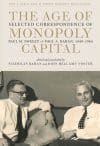
Paul A. Baran and Paul M. Sweezy were two of the leading Marxist economists of the twentieth century. Their seminal work, Monopoly Capital: An Essay on the American Economic and Social Order, published in 1966, two years after Baran’s death, was in many respects the culmination of fifteen years of correspondence between the two, from 1949 to 1964. During those years, Baran, a professor of economics at Stanford, and Sweezy, a former professor of economics at Harvard, then co-editing Monthly Review in New York City, were separated by three thousand miles. Their intellectual collaboration required that they write letters to one another frequently and, in the years closer to 1964, almost daily. Their surviving correspondence consists of some one thousand letters. | more…
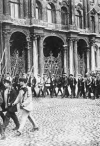
If counterrevolution ultimately triumphed over the revolutionary waves of the twentieth century, how are we to understand this, and what does it mean for the future of world revolution? The answer requires a survey of the whole history of imperialist geopolitics over the last century. | more…
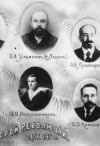
For a century, the counterrevolutionary reaction to the events of October 1917 has arguably been the most determining ideological factor in Western politics. Today the victory of that counterrevolution is complete, but Western powers still need their inherited antithesis, in changing form, as self-justification. | more…
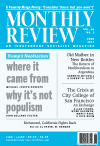
In the last several years, the left has experienced a series of defeats, and the grip of capital has tightened. The recent reversals in Latin America are a warning. We live in an age where a new era of revolutionary social change, unlike any that came before it, is the only hope—not just for ourselves, but for the chain of human generations. | more…
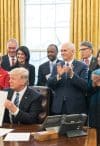
Since Trump’s election, mainstream commentary has generally avoided the question of fascism or neofascism, preferring instead to apply the vaguer, safer notion of “populism.” In today’s political context, however, it is crucial to understand not only how the failures of neoliberalism give rise to neofascist movements, but also to connect these to the structural crisis of concentrated, financialized, and globalized capitalism. | more…

Consider the child with curly brown / hair sleeping with her dog in the back / of an old SUV while her parents doze / in scruffy front seats tilted back.…
Marge Piercy is the author of many books of poetry, most recently
Made in Detroit.

What can a class analysis tell us about fascism’s national particularities and early forms? Why was there no mass movement for a separate fascist party in the United States? The lessons of several now-forgotten works of scholarship from the 1930s are critical to our understanding of American fascism—not only for what they tell us about its history, but also about how to fight it today. | more…
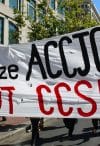
Did the accreditation crisis and subsequent labor struggle at City College of San Francisco represent a failure of union democracy, or a hard-won victory against corporate education reform? Rick Baum’s recent article on this question, “A Teachers Union Against Itself” (published the April 2017 issue of Monthly Review) prompted a lively response from AFT Local 2121 members and supporters. This correspondence article collects their letters, as well as a reply by Baum. | more…

In 2014, after years of grassroots organizing, a coalition of progressives transformed Richmond, California into the largest city in the United States governed by a Green Party mayor. But Richmond is not just Anytown: its economy and government has been dominated for a century by a giant Chevron refinery, and by a racist political machine determined to keep the city’s working-class and nonwhite majority out of power. | more…

U.S. immigration has been the subject of furious debates for decades. On one side, politicians and the media talk about aliens and criminals, with calls to “deport them all.” On the other side, some advocates idealize immigrants and gloss over problems associated with immigration. Dialogue becomes possible when we dig deeper and ask tough questions: Why are people in other countries leaving their homes and coming here? What does it mean to be “illegal”? How do immigration raids, prisons, and border walls impact communities? Who suffers and who profits from our current system—and what would happen if we transformed it? | more…
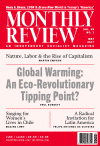
The fact that alt-right figures are playing key roles in the Trump administration, while circumventing the Senate confirmation process, is an ominous indication of the wider effort by the administration to construct a new political order, further concentrating power in the White House and bringing the rest of the state into line. | more…

Rethinking 1984 and Brave New World
With the rise of Donald Trump, U.S. politics has descended, like never before, into a theater of the absurd. Unbridled anti-intellectualism, deception, and “vindictive chaos” recall a morally reprehensible past in the guise of “making America great again.” But despite his populist posturing, Trump’s contempt for democratic processes is matched by his commitment to economic policies that favor the financial elite. | more…











